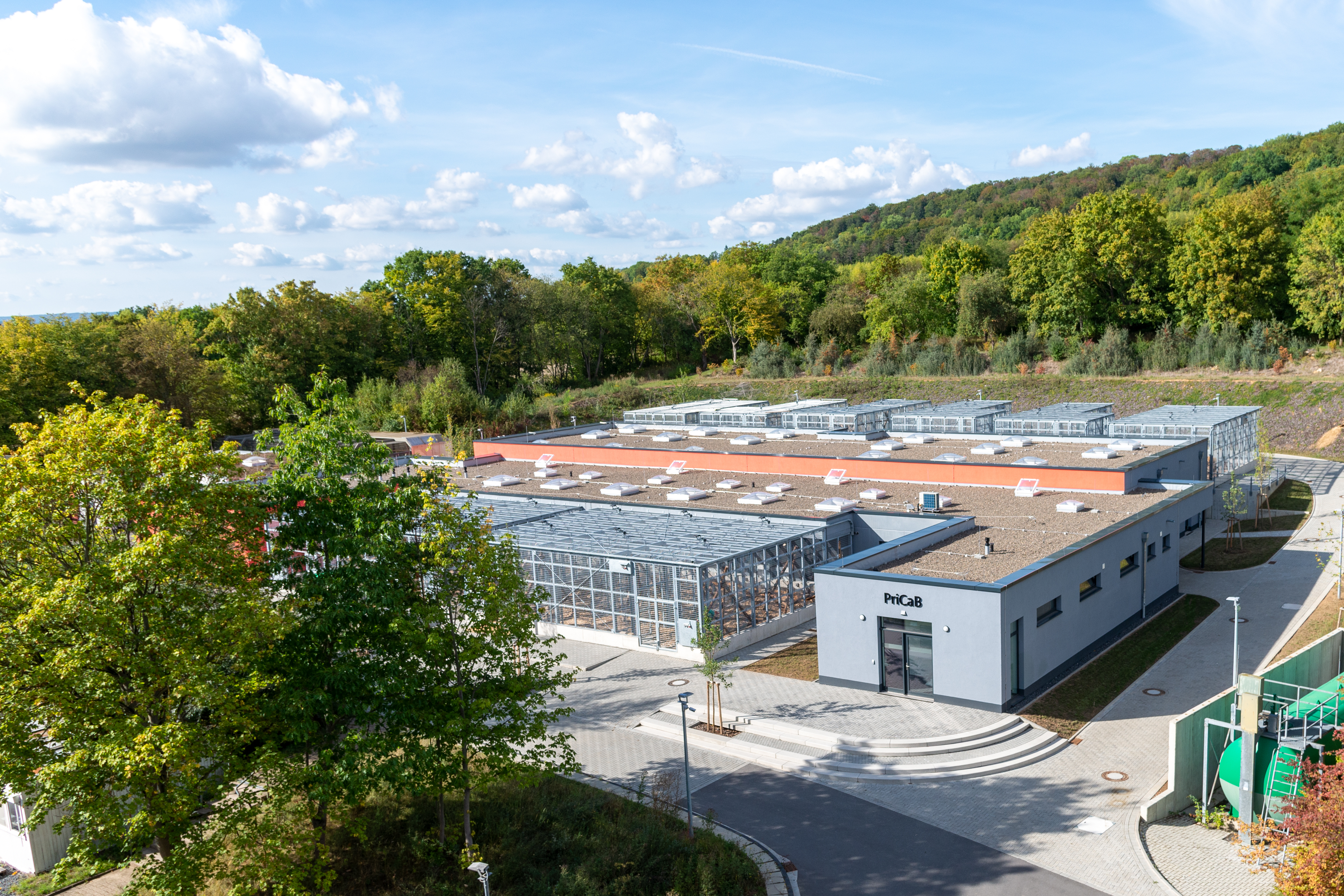Primate husbandry and research under one roof
The new research and husbandry building PriCaB, short for Primate Cognition and Behavior, uniquely combines aspects of animal husbandry and animal research with non-human primates. In particular, the animals' cognition abilities can be explored using the equipment for playful interaction without the animals having to leave their social group. A camera system combined with novel analysis and recognition programs will also be used to record the animals' behavior and health status individually and around the clock. Thus, the new building at the German Primate Center - Leibniz Institute for Primate Research (DPZ) also enables significant contributions to safeguarding and researching animal welfare in non-human primates.

The DPZ husbandry unit PriCaB (Primate Cognition and Behavoir), 2022. Photo: Karin Tilch, © German Primate Center
Comparative research with primates and humans
The PriCaB building at the German Primate Center (DPZ) was named in analogy to the new HuCaB (Human Cognition and Behavior) research building recently approved at the University of Göttingen. The two buildings expand the joint research of the university and the DPZ within the Leibniz ScienceCampus Primate Cognition. “The combination of PriCaB and HuCaB is a milestone of true comparative research, as parallel studies with monkeys and humans will be possible with closely matched observational approaches,” says Stefan Treue, director of the German Primate Center. An interaction platform has already been developed for this interconnected research, a transparent touchscreen on which two subjects sitting opposite each other can play games against and with each other, incorporating their counterpart’s behavior and facial expressions into their decisions. The subjects can be both monkeys and humans. “The comparative studies in the ScienceCampus will provide unique insights into the foundations and evolution of human behavior and our social-cognitive abilities,” says Annekathrin Schacht, head of the HuCaB project at the Unversity of Göttingen. Knowledge of the neuronal mechanisms that enable our cognitive performance and the new observation methods will also help to detect neurological disorders in humans at an early stage and to develop novel therapeutic approaches for attention and perception disorders, for example.
“The combination of PriCaB and HuCaB, together with the modeling approaches provided by the Göttingen Campus Institute for Dynamics of Biological Networks (CIDBN) and the Max Planck Institute for Dynamics and Self-Organization, shows the great opportunities that the Göttingen Campus offers for cognitive and behavioral research,” says Stefan Treue. This is also increasingly being noticed internationally; no less than two of the prestigious ERC Starting Grants went to the DPZ this year from the field of brain research.
Information about the building
The building was completed within three years and cost a total of 6.5 million euros. 30 percent of the construction costs were financed by the DPZ from its own funds, the remaining 70 percent came from the federal and state governments. At its core, the building consists of 12 animal housing units, each consisting of an indoor enclosure and an associated outdoor enclosure. In addition, there are changing rooms for animal keepers and scientists, a feed kitchen, treatment, storage and technical rooms. The indoor area of the building is 1170 square meters, and the outdoor enclosures have an area of 588 square meters.
Flexibility in research and husbandry
The special feature of the building, apart from its spaciousness, is its great flexibility, so that primates of different species and in different group sizes can be housed. In addition, different research questions can be investigated without the animals having to leave their social group. A camera system supported by N-Bank with half a million euros will record behavioral data around the clock, which will be evaluated with novel analysis programs. In the process, an integrated recognition program will make it possible to identify each animal in the group and record its behavior, health and cognitive abilities. “In this way, we can identify potential stresses on the animals and also transfer this knowledge to other types of husbandry, such as those required in infection research,” says Rabea Hinkel, head of the Laboratory Animal Science department at the DPZ. Thus, the PriCaB building with its modern equipment is a so far unique approach to record the health status of the animals on the one hand and to gain important research data on the other hand.
Translated with www.DeepL.com/Translator (free version)




